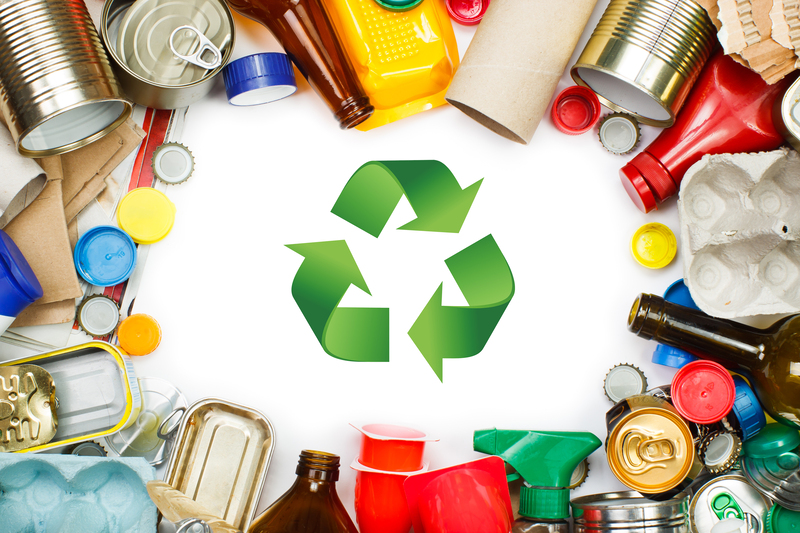Economical Bulky Waste Disposal: What You Need To Know
In today's environmentally conscious society, economical bulky waste disposal is both a practical necessity and a social responsibility. Whether you're clearing out your attic, upgrading your old sofa, or handling waste from a renovation, managing large, unwanted items can be challenging. But with the right strategies, you can save money while disposing of bulky waste responsibly and sustainably.

Understanding Bulky Waste: What Qualifies?
Before you seek the most cost-effective way to dispose of large waste items, it's helpful to know what counts as "bulky waste." Bulk waste generally refers to items too large for regular household bins and typical curbside collections. This includes:
- Furniture (sofas, beds, armchairs, desks)
- White goods (refrigerators, washing machines, stoves)
- Carpets and rugs
- Large electronics (TVs, computers, printers)
- Mattresses and bed frames
- Garden waste (branches, large plants, garden furniture)
- Renovation debris (doors, window frames, bathtubs)
Knowing what qualifies as bulky waste will guide you in selecting the right disposal service and minimize unforeseen costs.
Why Economical Bulky Waste Disposal Matters
The improper disposal of heavy and large items can lead to:
- Legal penalties for fly-tipping (illegal dumping)
- Environmental harm due to landfill overflow and pollution
- Community complaints and reduced curb appeal
- Personal inconvenience and health and safety risks
Achieving affordable bulk waste management not only helps your wallet -- it also helps the planet by promoting recycling and responsible disposal.
Top 7 Ways to Dispose of Bulky Waste Economically
Let's explore the most reliable, wallet-friendly, and eco-conscious methods for disposing of large and heavy waste items.
1. Council Bulky Waste Collection Services
Many local councils offer scheduled bulky item collections for residential households, often at reduced rates or even free. Check your council's website for:
- Accepted items and volume limits
- Booking process & collection days
- Fees for excess items or specific categories (e.g., mattresses)
*Tip: If you coordinate with neighbours or plan ahead, you can make full use of your allowance and minimize costs.*
2. Donate, Sell, or Give Away
If your unwanted items are in good condition, consider reusing bulky items by donating them to local charities, shelters, or community organizations. Platforms like Freecycle, Gumtree, and Facebook Marketplace help you pass items on without disposal fees.
- Donation reduces landfill waste
- Potential tax deductions for charitable gifts
- Giving away saves time and collection fees
Economical bulky waste disposal often starts by preventing waste in the first place!
3. Take Items to the Local Recycling Centre
Most local authorities maintain Household Waste Recycling Centres (HWRCs) that accept:
- Furniture
- Electrical appliances (WEEE items)
- Carpet and mattresses
- Scrap metals and wood
Transporting items yourself can save money compared to paid collection services. Remember to check:
- Opening times and ID/proof of residency requirements
- Rules for vans/trailers (often require permits)
- Any disposal charges for certain items (eg. fridges, tyres)
4. Hire a Man & Van Clearance Service
If you lack transport or help, search for affordable man and van bulky waste removal. These private companies offer flexible services:
- Same-day or next-day collections
- Labour included (they do the heavy lifting)
- Licensed waste carriers ensure legal and ethical disposal
Compare prices and check for reviews to avoid rogue traders and get the best deal. Always ask for a waste transfer note as proof of legal disposal.
5. Hire a Skip - But Share to Save!
Skip hire is excellent for renovation or garden projects that generate substantial bulky waste. Skips come in multiple sizes, from mini to builder's skips.
- Splitting a skip with a neighbour can halve your costs
- Ensure you only put permitted items inside (check prohibited items like asbestos or electricals)
- Book in advance for lower prices
Remember: Overfilling the skip incurs extra charges! Stick within the fill line.
6. Retailer Takeback Schemes
When buying new furniture or appliances, check if retailers offer takeback or removal services when they deliver replacements.
- Some retailers collect old items for free or a small fee
- Items are often recycled responsibly
- Saves you transport and time
*Tip: Compare different retailers' takeback policies before you buy for added value!*
7. Community Clean-up Days and Waste Drives
Some councils and groups organize local collection days for free or low-cost disposal of bulky items. These can include:
- Scheduled amnesty days for specific waste types
- Special drives for electronics or garden waste
- "Skip Days" where a community skip is provided
Keep an eye on local announcements and email lists for opportunities to clear bulky waste cheaply.
How to Choose the Most Economical Bulky Waste Disposal Method
To pick the cheapest bulky waste disposal solution for your situation, consider:
- Volume & Weight: Is it one mattress or a house clearance worth of waste?
- Transport: Do you have a car, van, or trailer?
- Labour: Are you able to load heavy items yourself?
- Time constraints: Do you need it gone today or can you wait for scheduled collections?
- Type of item: Can it be recycled, reused, or must it be landfilled?
Comparing your answers can help you spot the solution that balances cost-efficiency, convenience, and environmental responsibility.
Avoid These Common Mistakes in Bulky Waste Disposal
- Fly-tipping or illegal dumping: Always use licensed providers and authorized disposal sites
- Ignoring recycling: Many items (wood, metal, WEEE waste) can be recycled instead of landfilled
- Assuming everything is accepted: Always check what your service or site will take
- Delaying disposal: Storing waste long-term can attract pests and increase removal difficulty
*Choose a reliable and sustainable route to avoid fines, environmental harm, or unexpected outlays.*
The Environmental Impact of Bulky Waste
Proper large item waste removal affects more than your home's tidiness -- it impacts landfills, ecosystems, and climate. Bulky waste is responsible for a significant share of landfill space and poses unique pollution risks (e.g., fridge refrigerants, mattress foam, electronics with hazardous materials).
By choosing the most economical and eco-friendly bulky waste disposal option, you contribute to:
- Lower landfill impact
- Increased recycling rates
- Reduced greenhouse gases
- Cleaner neighbourhoods
The best bulky waste clearance services will always prioritize recycling and ethical processing of what they collect.
Frequently Asked Questions (FAQ) on Affordable Bulky Waste Disposal
Q1: How can I dispose of a sofa or mattress cheaply?
A: The most economical way to get rid of a sofa or mattress is usually council collection (if available), donating to charity, or using a local recycling centre if you have transport. Some charities collect reusable sofas free of charge.
Q2: Can I put bulky waste out with my regular bins?
A: No. Bulky waste is too large for regular bin collections. Placing large items beside your bin may lead to fines or rejection by waste collectors.
Q3: Is it cheaper to hire a man and van or a skip?
A: For single items or small numbers of bulky items, a man and van waste collection is usually cheaper. For volumes over 2-3 cubic yards, especially with mixed waste, a shared skip may be more cost-effective. Always compare quotes.
Q4: What happens to large items collected by the council or private waste carriers?
A: Reputable collectors will recycle or responsibly dispose of collected items at licensed waste transfer stations. White goods typically go to WEEE (electrical recycling), and reusable furniture is often donated or processed for materials recovery.
Q5: Are there items that cannot be collected as bulky waste?
A: Yes. Hazardous waste (asbestos, paint, chemicals), builders' rubble, and certain electronics may be excluded. Always check your council's list, and never attempt to dispose of hazardous items without specialist help.

Tips to Minimize Bulky Waste & Save Money
- Buy durable, repairable home goods to reduce the frequency of disposal
- Upcycle or repurpose old furniture
- Share skips or clearance costs with neighbours
- Schedule disposals for free local collection days
- Break down large items to fit them into smaller, cheaper loads if possible
- Research donation and reuse options before opting for disposal
- Store unwanted items neatly while you plan the most affordable removal option
Final Thoughts: Get the Best Value for Bulky Waste Removal
Handling large and awkward waste items doesn't have to cost a fortune. With a little planning, you can achieve low-cost large waste disposal and reduce your environmental impact. Remember these key points:
- Use local council or charity collections for the best rates
- Visit recycling centres for free or minimal-fee disposal
- Research all your options before committing
- Always demand responsible, legal disposal of bulky waste
- Consider donation, reuse, and recycling before disposal
Managing bulky waste isn't just about clearing space - it's a chance to make an eco-friendly and budget-conscious choice. Always prioritize sustainable options and enjoy the satisfaction (and savings) of responsible bulky waste clearance!